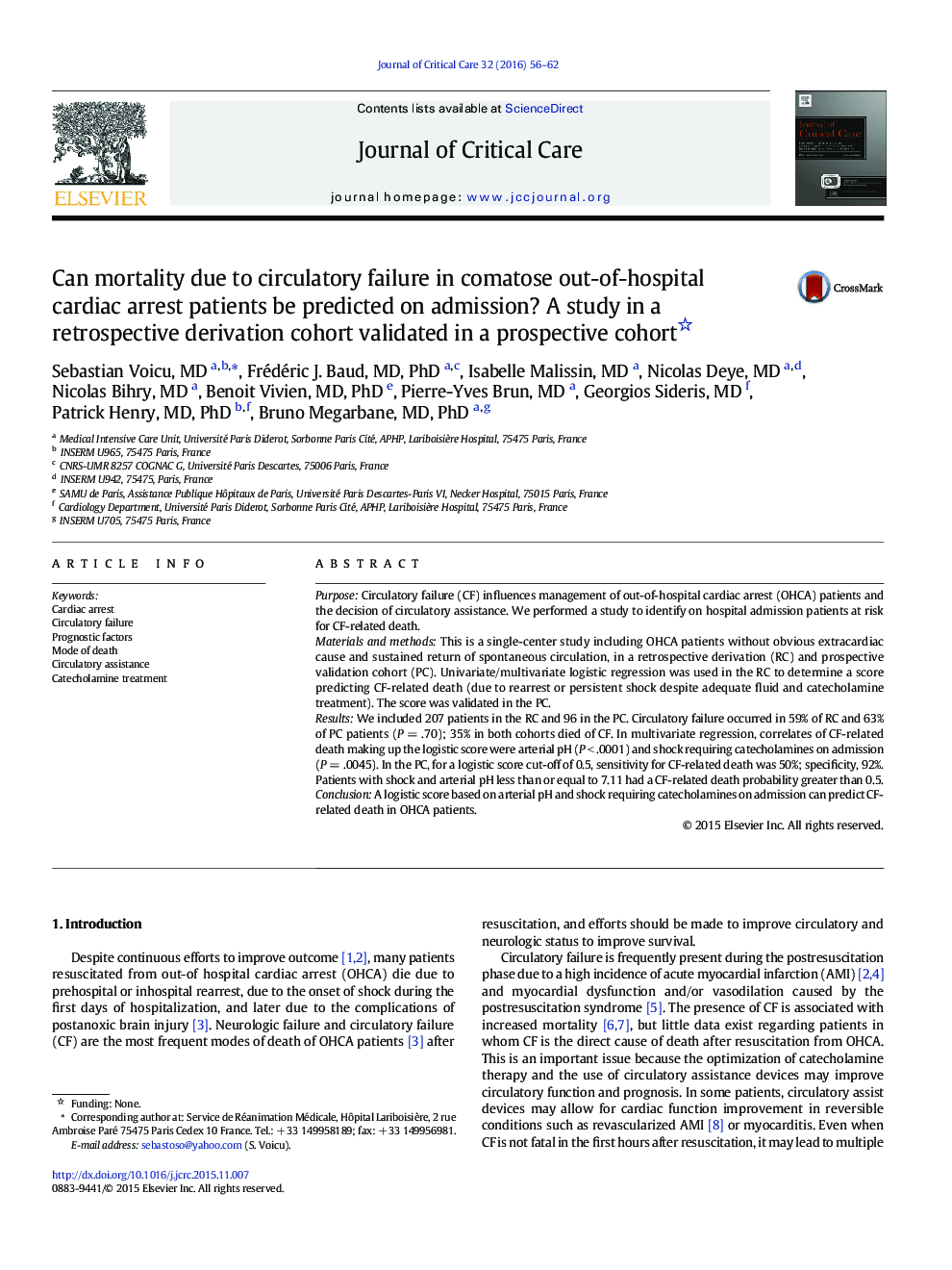| Article ID | Journal | Published Year | Pages | File Type |
|---|---|---|---|---|
| 2764475 | Journal of Critical Care | 2016 | 7 Pages |
PurposeCirculatory failure (CF) influences management of out-of-hospital cardiac arrest (OHCA) patients and the decision of circulatory assistance. We performed a study to identify on hospital admission patients at risk for CF-related death.Materials and methodsThis is a single-center study including OHCA patients without obvious extracardiac cause and sustained return of spontaneous circulation, in a retrospective derivation (RC) and prospective validation cohort (PC). Univariate/multivariate logistic regression was used in the RC to determine a score predicting CF-related death (due to rearrest or persistent shock despite adequate fluid and catecholamine treatment). The score was validated in the PC.ResultsWe included 207 patients in the RC and 96 in the PC. Circulatory failure occurred in 59% of RC and 63% of PC patients (P = .70); 35% in both cohorts died of CF. In multivariate regression, correlates of CF-related death making up the logistic score were arterial pH (P < .0001) and shock requiring catecholamines on admission (P = .0045). In the PC, for a logistic score cut-off of 0.5, sensitivity for CF-related death was 50%; specificity, 92%. Patients with shock and arterial pH less than or equal to 7.11 had a CF-related death probability greater than 0.5.ConclusionA logistic score based on arterial pH and shock requiring catecholamines on admission can predict CF-related death in OHCA patients.
